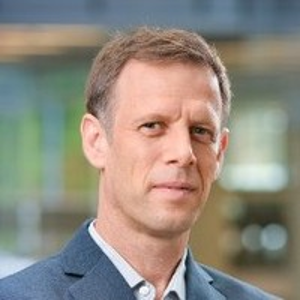
23 Oct Q&A with Itai Kela of Israel Innovation Authority

Dr. Itai Kela is the Head of the Healthtech Sector in the Israel Innovation Authority. Dr. Kela role is to nurture and develop life science innovation resources, while creating and strengthening the infrastructure and framework needed to support the healthtech industry and its ecosystem and to promote Israel economic growth. Dr. Itai Kela has over 15 years of experience in leading product development programs specializing in drug development and personalized medicine. Read his full bio.
Q&A with Itai Kela of Israel Innovation Authority
Q: Israel is known as a leader in hi-tech innovation. Can you tell us about some of the breakthrough companies in digital health and precision medicine?
A: The Israeli life sciences industry continues to grow and improve its global position. Israeli entrepreneurs’ ability to take advantage of the excellence in academic research, wide government support and innovative ecosystem, contributes to the industry’s success.
There are approximately 1,450 Israeli companies in the life sciences sphere, including more than 200 pharmaceutical companies, nearly 600 medical device companies and 450 digital health companies developing transformative innovations in oncology, neuroscience, immunology, stem cell research, gene therapy, genomic editing, and more. In 2016, life sciences exports from Israel reached $6.9 billion, illustrating the country’s global leadership in the sector. While the share of medical devices sub sector, which is traditionally the largest sub sector in the industry, continues to shrink, while digital health and therapeutics sub sectors continues to grow. 2017 was a record year attracting funding of $1.2 billion, which represents 25% of the total investments in Israeli high-tech (IATI report, 2018). Israeli life sciences companies raised nearly $7 billion on NASDAQ over the past decade. During the past five years alone, there were more than $4 billion worth of acquisitions of Israeli companies in the field.
Israel is in an excellent starting position to become a major player in the field of digital health and precision medicine, for three main reasons:
A) Its uniqueness as the Start-up Nation, characterized by an entrepreneurial environment, high quality human capital and leading academic research.
B) An advanced health system which consistently ranks among the best in the world, and detailed electronic medical records that are available for ninety eight percent of Israel’s population.
C) Renowned worldwide for its technological prowess in fields like IT, communication cybersecurity, artificial intelligence, with more than 25 years of experience in implementing information systems and analysis in its public healthcare system.
Currently, in Israel, there are more than 450 companies in the field of digital health (Health IT, diagnostics and precision medicine), in which more than half of the companies were established in the last six years, with an average of 36 per year. As in the hi-tech sector, many of the companies developed health disruptive innovations, for example, Zebra Medical that uses artificial intelligence and machine learning algorithms for automated analysis of medical images such as X-ray, CT and MRI; Taliaz, that employs AI to generate therapy prediction reports, including for ascertaining the efficacy of different antidepressants; Tyto Care that is transforming primary care by offering a mobile system enabling a complete examination of the heart, lungs, skin, throat, and ears, including temperature readings, anywhere and anytime. The system allows for accurate long-distance interaction between doctor and patient and online diagnosis based on real-time tests conducted by a digital stethoscope; EarlySense that develops patient monitoring systems for hospitals and healthcare systems providing continuous patient monitoring for heart rate, respiratory rate, and motion to allow the clinical team to manage early detection of patient deterioration, fall prevention, and pressure ulcers prevention; ContinUse Biometrics that develops remote & non-touch sensing technology to monitor physiological state; Nucleix that develops urine and blood-based non-invasive early detection test for lung cancer based on advanced DNA methylation biomarker analysis; DayTwo that provides personalized nutrition and actionable insights for people to maintain normal blood sugar levels based on their gut microbiome DNA sequences, which is as unique to each individual as their fingerprints.
Q: What government initiatives contribute to the development of digital health industry in Israel?
A: The Israeli government defined the field of precision medicine and digital health as its next economic growth engine. On March 2018, the Israeli government approved a $264 million national digital health program, aimed at building a personalized digital health system in Israel to deliver more personalized and preventive care. The initiative helps position Israel for global leadership in data-driven healthcare– a field that’s forecasted to grow significantly and to be based on artificial intelligence and machine learning technologies that are increasingly deployed in medicine.
The program includes technological development, international cooperation, support academic research, industrial development and regulatory changes to facilitate data research. The program is based on a combination of three main assets: large health record databases, artificial intelligence capabilities and connectivity. Israel’s health system ranks globally as one of the best healthcare systems due to its advanced clinical setting, concentrated and small size infrastructure and well organized and documented medical record system. The fact that twenty five years ago, the healthcare system begun to digitize medical documentation, enables every doctor in Israel today, to view clinical files of over 98% of the population. The national digital health program aims to upgrade the quality of the digital medical record, and to enable better diagnosis and treatment in the future. Medical record documentation is highly significant for researchers, developers and companies looking to develop effective preventive and precision medicine. In addition, the program will allow startups to have access to digitally stored medical data to perform big data research. This is a valuable platform for Israeli digital health companies and a great advantage compares to other companies around the world.
Q: What are the objectives of the Israeli National Genomic-Clinical Initiative?
A: The Israeli National Genomic-Clinical Initiative, named “Mosaic”, is part of the national digital health program with a budget of $80 Million for 5 years. The “Mosaic” is a national information infrastructure initiative for health researchers in genetics and medical information to develop effective precision medicine treatments. The “Mosaic” consists anonymous Israeli database volunteers and can show long-term disease and illness trends of its citizens for the past 20 years, offering a huge data set for researchers.
Some volunteers will anonymously input personal medical information in order to detect trends and better pinpoint diagnoses. In addition, the Israeli population has unique and large ethnic variation, which enable better targeted and accurate drug development and diagnosis of rare and complex diseases.
Q: It has been reported that General Electric and Roche are considering Israel as a possible location for a joint research operation. What Israel has to offer multinational pharmaceutical and medical device companies?
A: There are over 350 foreign multinationals R&D centers in Israel, however that vast majority of the activity focus on the field of ICT. There is great importance in attracting activity by multinational companies to other technological fields – especially life sciences. The life sciences industry in Israel can greatly benefit from the knowledge, experience and access to markets engendered by multinational corporations. This year, the Israel Innovation Authority launched a new incentive program pilot to encourage the establishment of multinational companies’ R&D centers in the fields of biotechnology and health (Track 35 initiative Recently, three life-science giants — Medtronic, GE Healthcare and Change Healthcare won the first Track 35 tender and will expand their Israeli R&D centers over the next six years with the help of a $33 million grant from the Israel Innovation Authority and the Ministry of Economy and Industry. These three new R&D centers are expected to provide a significant boost to the biomedical field in Israel and will bring unique knowledge and experience to the local workforce.
Beyond that, the next challenge is to recruit major pharma companies to open research and development centers in Israel and to reinvigorate the Israeli drug and diagnosis industry. Most of the international pharma companies that are active in Israel have established branches for selling to the Israeli market, but not development activity like the ones in communications and software or even in medical devices.
Q: Anything else you would like to share with the readers?
A: I added in the first paragraph an overview about the Israeli life sciences industry.






